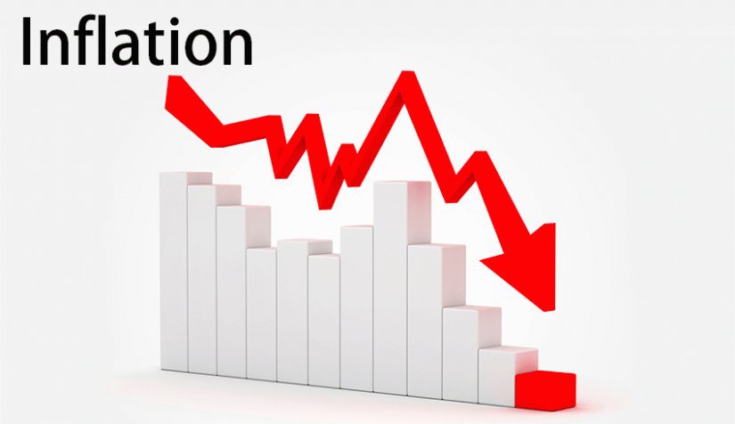
Audio By Carbonatix
The Institute of Economic Affairs (IEA) is predicting an inflation of 15-17% in 2025.
This would be higher the International Monetary Fund forecast of 8% and the Bank of Ghana’s target of 8 +/- 2%.
In its bi-monthly economic outlook, it said inflation should be reduced even further through stronger intervention measures.
The year 2024 ended with inflation of 23.8%, slightly higher than the rate of 23.0% recorded in November. The end-year inflation was also higher than the 18.0% projected under the IMF-supported programme.
Throughout the year, inflation remained stuck in the low twenties, far above the Bank of Ghana’s target of 8 +/- 2%.
Under the IMF programme, inflation is projected to drop to 8.0% in 2025, the Bank of Ghana mid-point target. This would imply a drop of 15.8 percentage points from the 2024 rate.
This drop, the IEA said would, however, seem a bit optimistic, given the poor historical record.
It therefore alluded that “A more likely outcome would be 15-17%. During 2026-29, inflation is projected to remain at 8.0%. This would appear to be a more realistic scenario, although it would require strong policy measures to achieve those outcomes”.
Food Inflation
In December, food inflation was 27.0%, much higher than non-food inflation of 20.3%.
Indeed, throughout the year, food inflation was almost consistently higher than non-food inflation and overall inflation.
The indicates the importance of food, which accounts for 43% of the Consumer Price Index (CPI) basket, in determining overall inflation and the cost of living in the country.
The IEA said the importance of food, along with energy and the exchange rate, in driving inflation recently is well-known.
On reducing inflation, the IEA said “What needs to be done to reduce inflation significantly is for the Bank of Ghana and Government to collaborate to target directly food prices, energy prices and the exchange rate. This is all the more important since even if the inflation projection of 8.0% for 2025-29 is achieved, Ghana’s inflation would still be higher than those of its major trading partners, rendering the country uncompetitive”.
“This means that inflation would have to be reduced even further through stronger intervention measures”, it concluded.
Latest Stories
-
Life begins at 40: A reflection on experience and leadership
25 minutes -
Maresca leaves Chelsea after turbulent end to 2025
48 minutes -
NPP still hurting after 2024 loss – Justin Kodua
59 minutes -
Ghana declares war on illegal streaming of pay-TV content
1 hour -
Vice President leads 44th anniversary commemoration of 31st December Revolution
1 hour -
Valencia coach Fernando Martin dies in Indonesia boat accident
1 hour -
Nigeria AG’s intervention brings relief to River Park estate investors – JonahCapital
2 hours -
High number of youth behind bars is a national loss – Ashanti regional prisons commander
2 hours -
Nhyira Aboodoo shifts to monumental projects, injects GH₵270,000 into Ashanti orphanages
2 hours -
Police restores calm after swoop operation at Aboso
2 hours -
Through thick and thin in 2025: KGL Group makes national, global impact
2 hours -
Clean Air Fund sets 2026 targets, pushing gov’t toward funding, tougher laws and real health gains on air pollution
3 hours -
New Year begins with 15.92% water and 9.86% electricity tariff hikes
3 hours -
TUC, PURC call for calm amid power tariff concerns, assure public of stakeholder engagement
3 hours -
New VAT is a game changer for Ghana’s revenue collection – GRA Boss
3 hours

